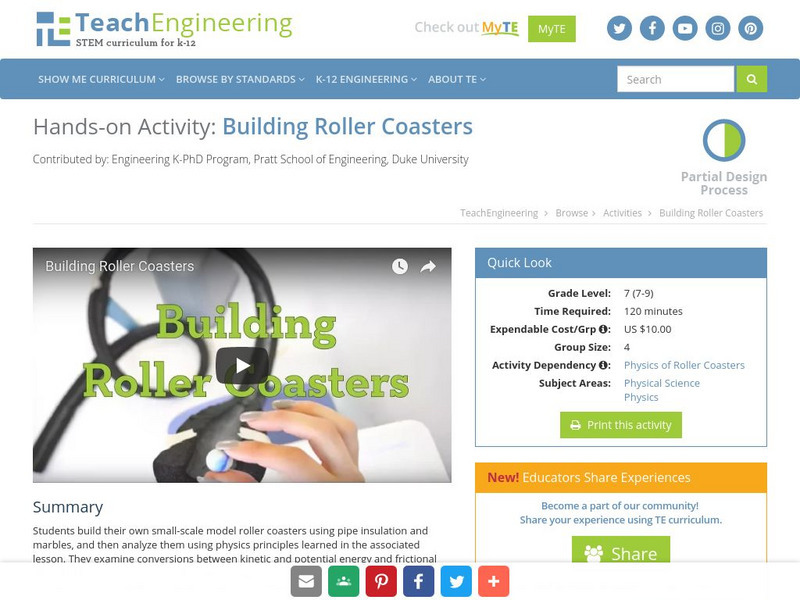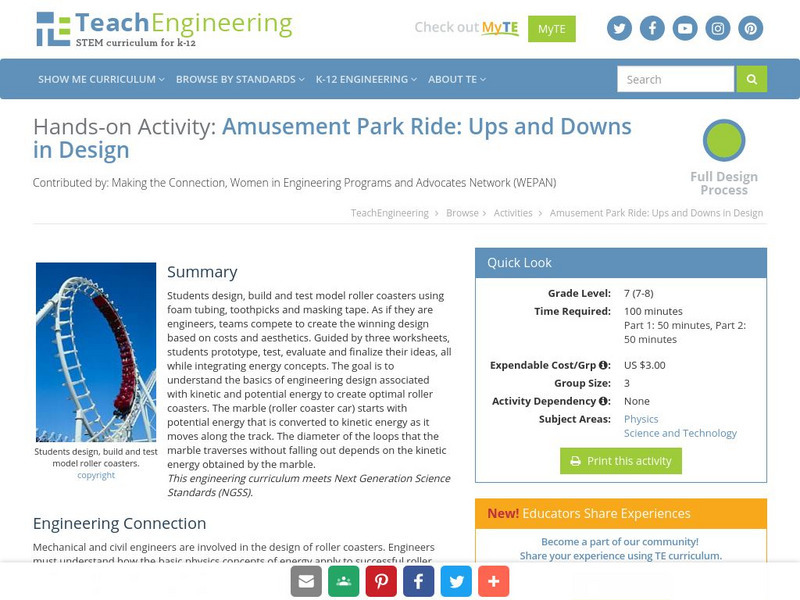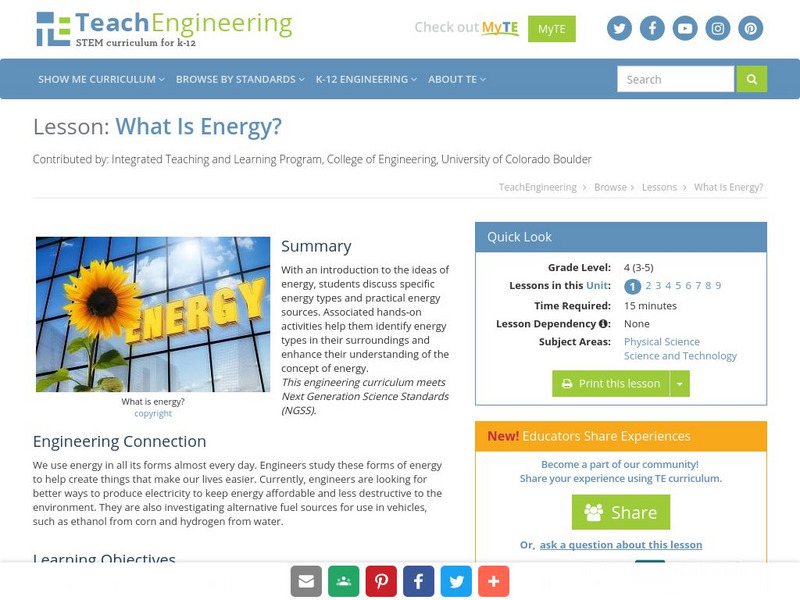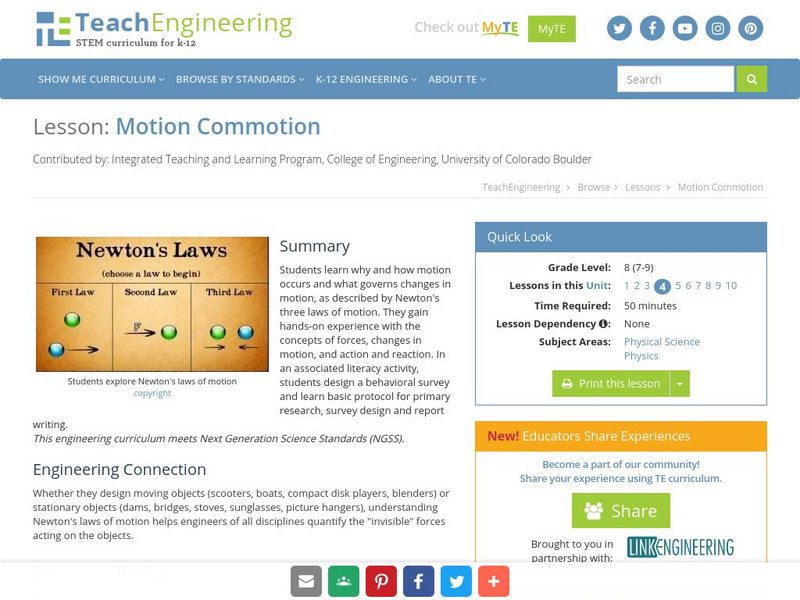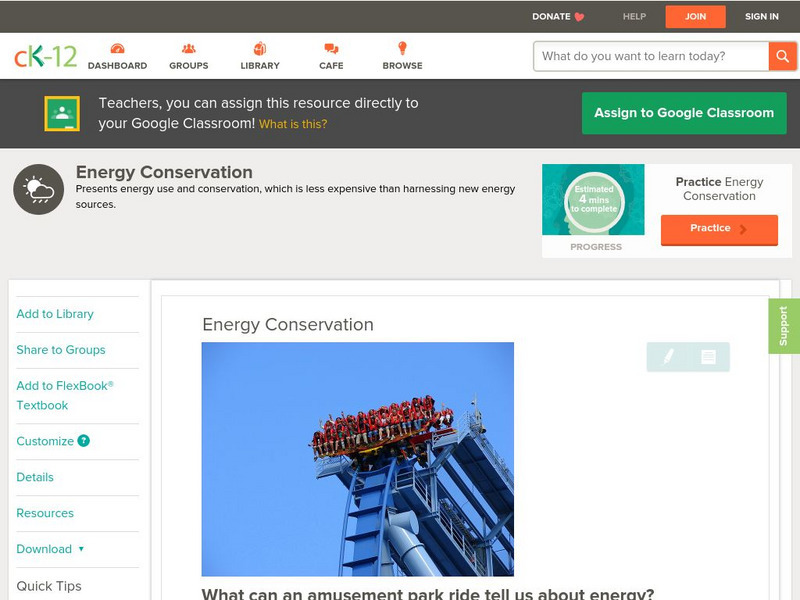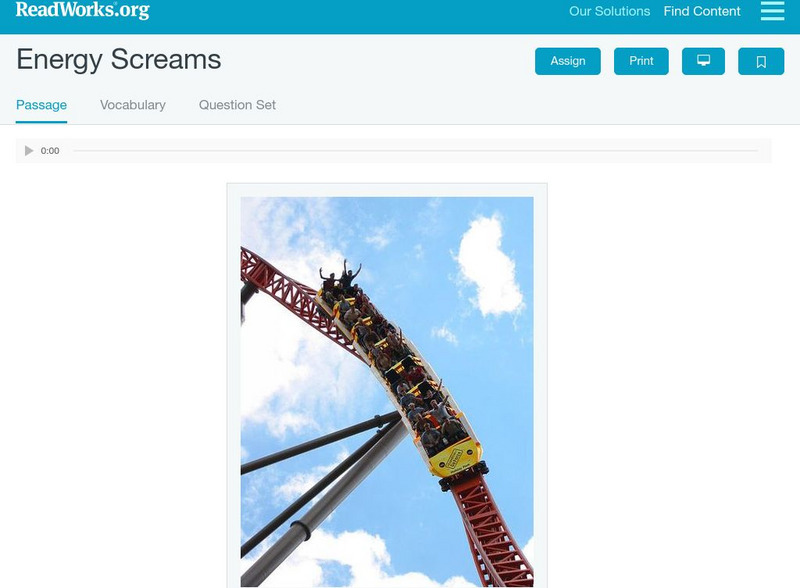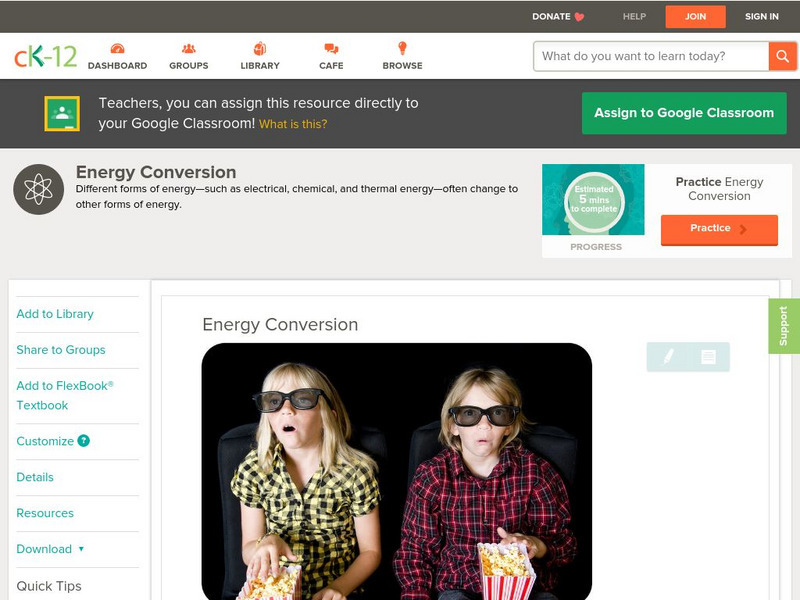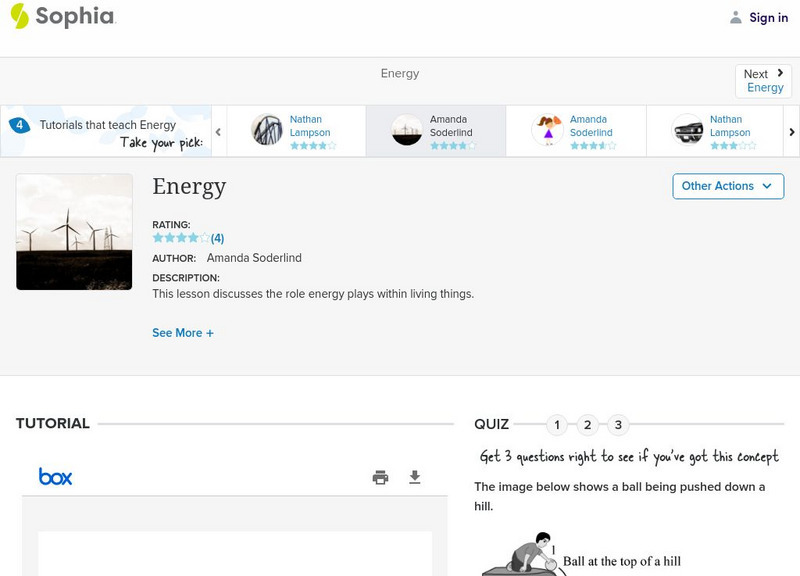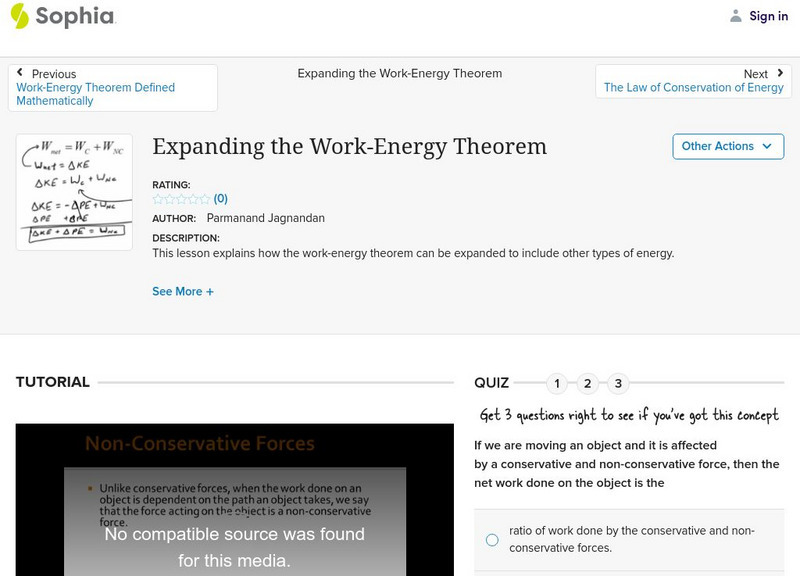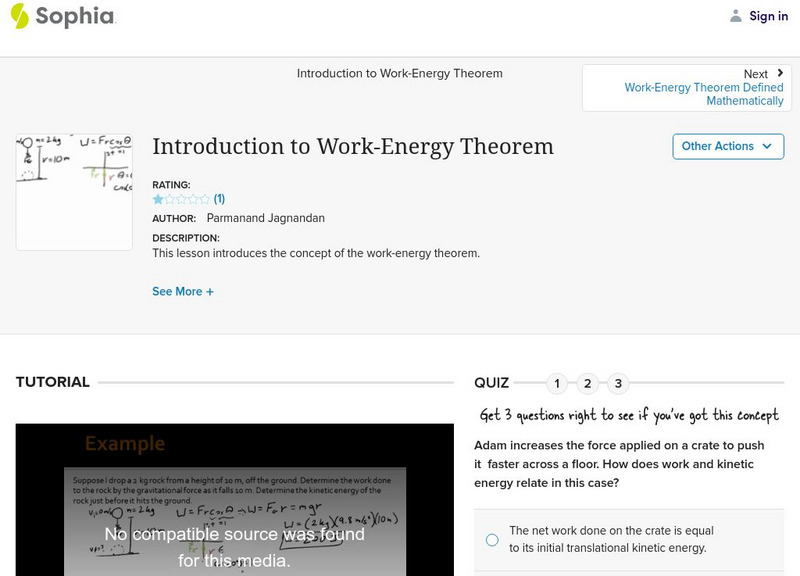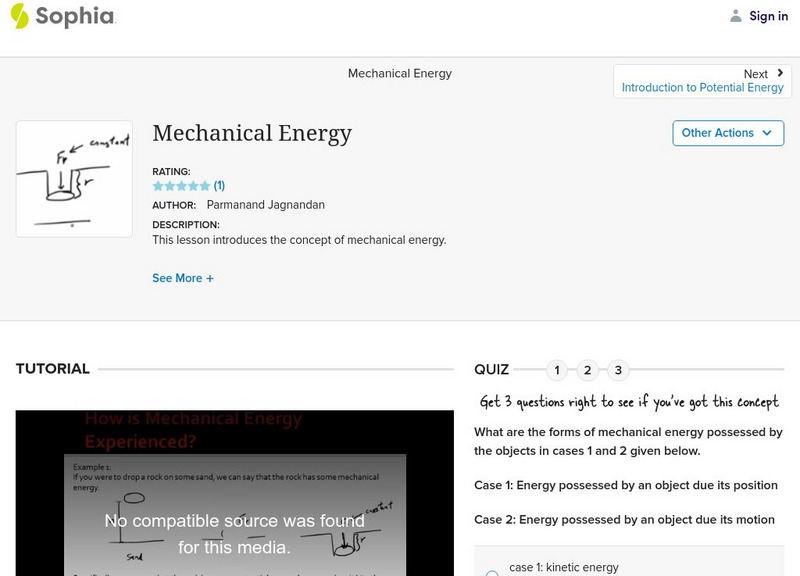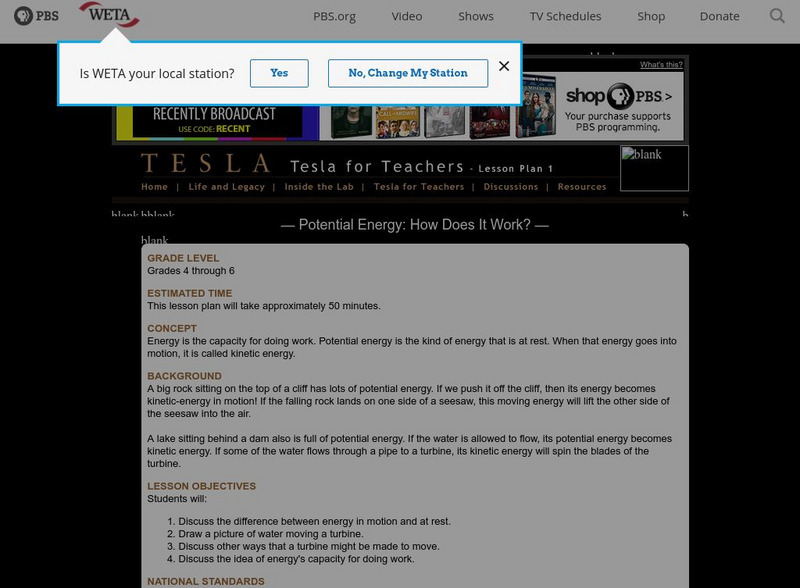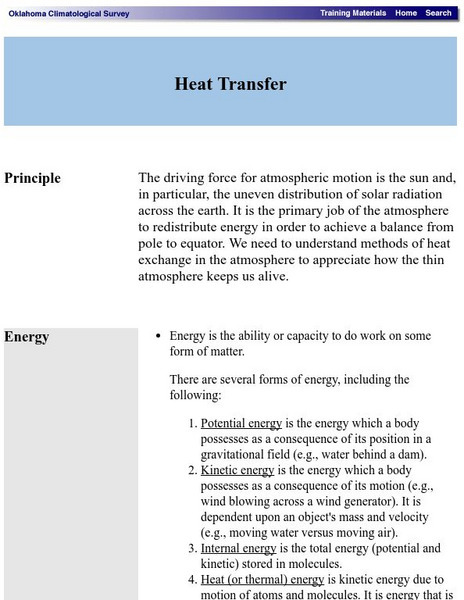Hi, what do you want to do?
TeachEngineering
Teach Engineering: Ramp and Review
In this hands-on activity - rolling a ball down an incline and having it collide into a cup - the concepts of mechanical energy, work and power, momentum, and friction are all demonstrated. During the activity, students take measurements...
TeachEngineering
Teach Engineering: Ramp and Review (For High School)
In this hands-on activity - rolling a ball down an incline and having it collide into a cup - the concepts of mechanical energy, work and power, momentum, and friction are all demonstrated. During the activity, students take measurements...
TeachEngineering
Teach Engineering: Building Roller Coasters
In this hands-on activity students learn about the laws of physics by creating a marble roller coaster.
TeachEngineering
Teach Engineering: Amusement Park Ride: Ups and Downs in Design
This unit has students design and build foam tubing roller coasters. The design process integrates energy concepts as they test and evaluate their designs that address the task as an engineer would. The goal is for students to understand...
TeachEngineering
Teach Engineering: Kinetic and Potential Energy of Motion
In this lesson, students are introduced to both potential energy and kinetic energy as forms of mechanical energy. A hands-on activity demonstrates how potential energy can change into kinetic energy by swinging a pendulum, illustrating...
TeachEngineering
Teach Engineering: Work and Power: Waterwheel
Investigating a waterwheel illustrates to students the physical properties of energy. They learn that the concept of work, force acting over a distance, differs from power, which is defined as force acting over a distance over some...
TeachEngineering
Teach Engineering: What Is Energy?
With an introduction to the ideas of energy, students discuss specific types of energy and the practical sources of energy. Hands-on activities help them identify types of energy in their surroundings and enhance their understanding of...
TeachEngineering
Teach Engineering: Motion Commotion
Students learn why and how motion occurs and what governs changes in motion, as described by Newton's three laws of motion. They gain hands-on experience with the concepts of forces, changes in motion, and action and reaction. In an...
CK-12 Foundation
Ck 12: Earth Science: Energy Conservation
[Free Registration/Login may be required to access all resource tools.] Overview of how energy is used, and how it can be conserved.
Read Works
Read Works: Energy Screams
[Free Registration/Login Required] An informational text about potential and kinetic energy on a roller coaster.. A question sheet is available to help students build skills in reading comprehension.
CK-12 Foundation
Ck 12: Earth Science: Introduction to Energy Resources
[Free Registration/Login may be required to access all resource tools.] Overview of the types of energy, and how it can be stored and released.
CK-12 Foundation
Ck 12: Earth Science: Introduction to Energy Resources
[Free Registration/Login may be required to access all resource tools.] Overview of the types of energy and how it can be stored and released.
CK-12 Foundation
Ck 12: Plix: Potential Energy Diagrams: Conservation of Energy
[Free Registration/Login Required] Drag the red point up and down to explore the interaction between potential energy and kinetic energy in a barbell.
CK-12 Foundation
Ck 12: Physical Science: Energy Conversion
[Free Registration/Login may be required to access all resource tools.] Decribes how energy changes from one form to another and energy changes between kinetic and potential energy.
Sophia Learning
Sophia: Energy
This tutorial explains the difference between potential and kinetic energy. It also introduces the Law of Conservation of Energy.
Sophia Learning
Sophia: Expanding the Work Energy Theorem
A narrated tutorial which illustrates how the work-energy theorem can be expanded to include other kinds of energy. [10:07]
Sophia Learning
Sophia: Introduction to Work Energy Theorem
Watch this screencast to understand the work-energy theorem in regards to energy. [8:45]
Sophia Learning
Sophia: Mechanical Energy
Understand when objects have mechanical energy with this video lesson. Also learn the difference between potential and kinetic energy. The video also discusses the factors that influence both potential and kinetic energy using examples....
PBS
Pbs Teachers: Potential Energy: How Does It Work?
Describe the difference between energy in motion and at rest, and demonstrate energy's capacity for doing work. Draw a picture of water moving a turbine, and discuss other ways that a turbine might be made to move.
University of Colorado
University of Colorado: Ph Et Interactive Simulations: Reaction & Rate Simulation
Students will learn what causes reactions and what affects the rates of reaction through data collected by conducting several simulated experiments.
Physics Classroom
The Physics Classroom: Potential Energy
The concept of potential energy is explained along with the two forms of potential energy: elastic and gravitational. Discusses what gravitational potential energy is, explains the direct relationship between it and mass and height, and...
Georgia State University
Georgia State University: Hyper Physics: Energy of Falling Object
This site is from the Physics Department at Georgia State University. The reliance upon the law of conservation of energy as an approach to problem-solving is presented and encouraged. It is modeled through a problem involving a...
Oklahoma Mesonet
Oklahoma Climatological Survey: Heat Transfer
A discussion from the Oklahoma Climatological Survey of the thermal factors effecting the movement of air masses in the atmosphere. Numerous topics such as methods of heat transfer, latent heat, phase changes (including sublimation and...
Physics Classroom
The Physics Classroom: Energy Relationships for Satellites
The orbits of satellites are described and an energy analysis is performed. Kinetic, potential and total mechanical energy are explained and applied to the motion of satellites.







